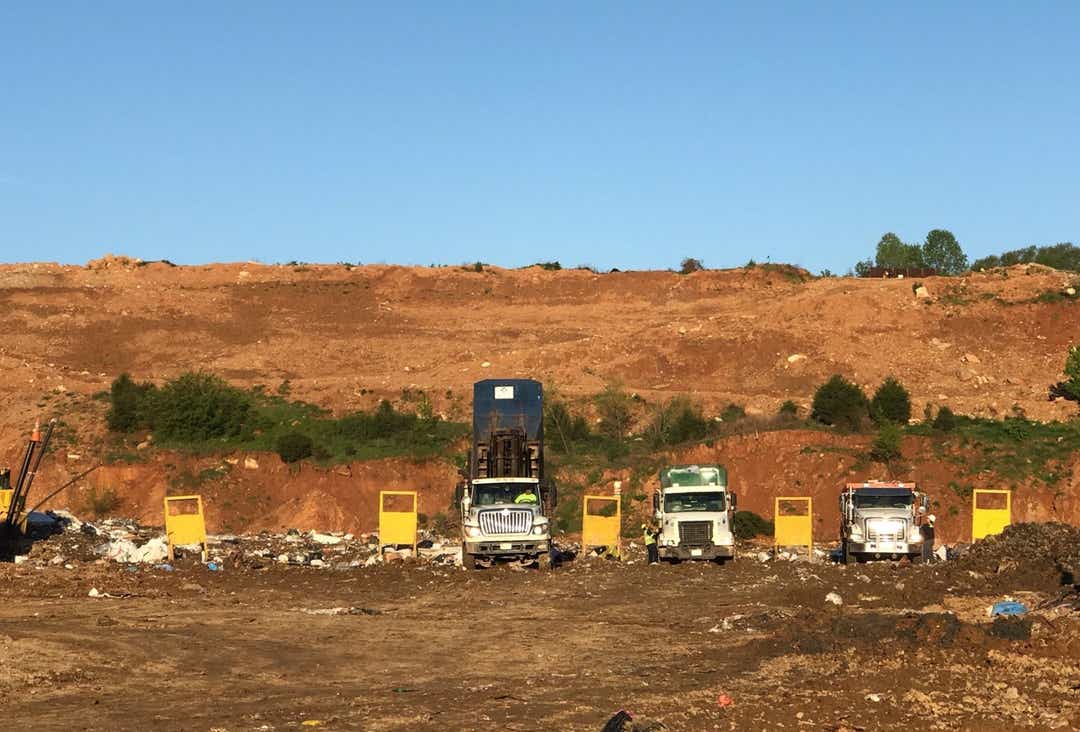Your neighborhood's Waste Management garbage truck might not look different, but it might soon sound different – or rather, you might not hear it at all.
The company is transitioning from diesel-powered garbage trucks to compressed natural gas (CNG) powered trucks. It's part of Waste Management's initiative to reduce fleet emissions by 45% by 2038.
These trucks are better for the environment and for your ears.
"They are very, very quiet, unlike a big, noisy diesel engine," said Mitch Rowan, Waste Management director of market planning for Arkansas, Tennessee, Alabama and Kentucky. "So it creates a much better environment for our drivers. You'd be surprised how noisy the insides of those trucks of those cabs are."
Cutting greenhouse gas emissions
The Waste Management Knoxville region received its first CNG truck in 2018. Today, 11 of its 40 trucks are CNG-powered, and the remainder of the fleet's diesel powered trucks will be replaced as they age out over the next 2-3 years.
It's part of the company's strategic plan to become an environmental company, not just a waste collection company, Rowan said.
CNG vehicles emit almost no air particulates and cut greenhouse gas emissions by nearly 25%.
CNG is made by compressing the volume of natural gas and is stored in a gaseous state. According to the U.S. Department of Energy, more than 175,000 vehicles in the U.S. are powered by natural gas. According to Natural Gas Vehicles for America, more than 17,000 garbage trucks run on natural gas in the U.S.
"For every truck we convert to natural gas, we reduce our use of diesel fuel by an average of 8,000 gallons per year, or a reduction of 22 metric tons of greenhouse gas emissions per year," Rowan said.
Using methane gas for good
The company also operates Chestnut Ridge Landfill in Anderson County, which Rowan said is the only sanitary landfill in Tennessee. The landfill opened in 1980.
The trash that amasses in a landfill produces methane gas. Most landfills burn off that methane gas after it is captured, but a sanitary landfill collects the gas and uses it to fuel generators that then create electricity for other uses.
The methane gas at Chestnut Ridge is directed to five generators, which then produce about 4.8 megawatts of electricity used nearby.

"That 4.8 megawatts is enough to power approximately 2,400 homes per year," Rowan said.
In the future, that methane gas could be used to power Waste Management's trucks in East Tennessee. A Waste Management sanitary landfill in Louisville is processing that captured methane gas and using it to fuel the area CNG garbage trucks.
"A landfill can have environmental benefits," Rowan said. "Many people do have misconceptions about landfills, but it can actually benefit the community through energy creation."
Email Brenna McDermott at brenna.mcdermott@knoxnews.com and follow her on Twitter @_BrennaMcD. If you enjoy Brenna's coverage, support strong local journalism by subscribing for full access to all our content on every platform.
"gas" - Google News
May 04, 2020 at 04:14PM
https://ift.tt/2zR7YXO
Transitioning to natural gas powered (and quiet!) trucks - Knoxville News Sentinel
"gas" - Google News
https://ift.tt/2LxAFvS
https://ift.tt/3fcD5NP
Bagikan Berita Ini














0 Response to "Transitioning to natural gas powered (and quiet!) trucks - Knoxville News Sentinel"
Post a Comment